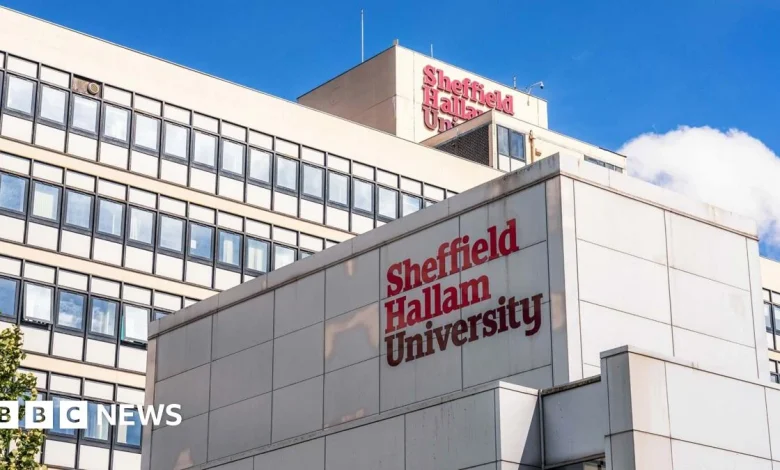China intimidated UK university to ditch human rights research, documents show

It all began so differently.
When, in 2021, Prof Murphy published a major report into Uhygur forced labour in the solar panel industry, external, the director of the Helena Kennedy Centre (HKC), the department in which her unit was based, wrote to congratulate her.
“This is an exceptional moment in the history of the HKC… we are all exceptionally proud of this body of work which rightly shines light on the blatant abuse of Uyghur tights (sic) in China.. Well done Laura!”
Over the following months her unit published four reports, including into car parts and cotton for clothing, trying to trace supply chains and highlight where goods reaching western consumers may have been produced with inputs made with forced labour in Xinjiang.
China denies such practices occur.
The Chinese Embassy in London told the BBC “the Helena Kennedy Centre at the Sheffield Hallam University has released multiple fake reports on Xinjiang that are seriously flawed”.
“It has been revealed that some authors of these reports received funding from certain US agencies,” the Embassy added.
Prof Murphy told the BBC she has received funding over the course of her career from the US National Endowment for Humanities for work on slave narratives, the US Department of Justice for work on human trafficking in New Orleans, and more recently from USAID, the US State Department and the UK Foreign Office for her work on China.
The Chinese Embassy said the allegations of “forced labor” in her reports “cannot withstand basic fact-check”.
“While presenting itself as an academic body, the Centre has in practice acted as a vehicle for politicised and disinformation-driven narratives deployed by anti-China forces,” the embassy added.
The university realised it was coming in for criticism from China as far back as 2022.
An internal university email from August of that year, seen by the BBC, said China’s foreign ministry had issued a statement “denouncing us as being in the ‘disreputable vanguard of anti-China rhetoric'”.
The email said the university had admitted 500 Chinese students in 2018, but numbers had collapsed in the pandemic and had not bounced back like it had in other markets.
It expressed concern that the Chinese government’s criticisms could result in a “boycott” by prospective students and recruitment agents.
In total, the documents show Sheffield had earned £3.8m in 2021/22 from China and Hong Kong.
Later in August 2022 the university’s English language testing website used by Chinese students to take tests before coming to Sheffield had been “shut down in China temporarily”.
Over the next two years the pressure escalated dramatically leading university officials to write in an email in May 2024 that “the continuation of the university’s scholarly activity with and in China and Hong Kong has been placed at risk because of the research activities, led by Professor Laura Murphy, in relation to alleged persecution of Uyghur Muslims in Xinjiang, China”.
An internal “risk summary,” dated 9 December 2024, detailed what had happened.
In August 2022, China had blocked access to the university’s websites. All email communication from and to the university was disabled.
It meant students in China due to study at Sheffield Hallam were unable to access the enrolment website, arrange their welcome or airport pick up in the UK, or course information.
The university said this had “undoubtedly had a negative impact on recruitment” in 23/24, with “anticipated further decline in 24/25”.
And, in 2024, the intimidation began.





